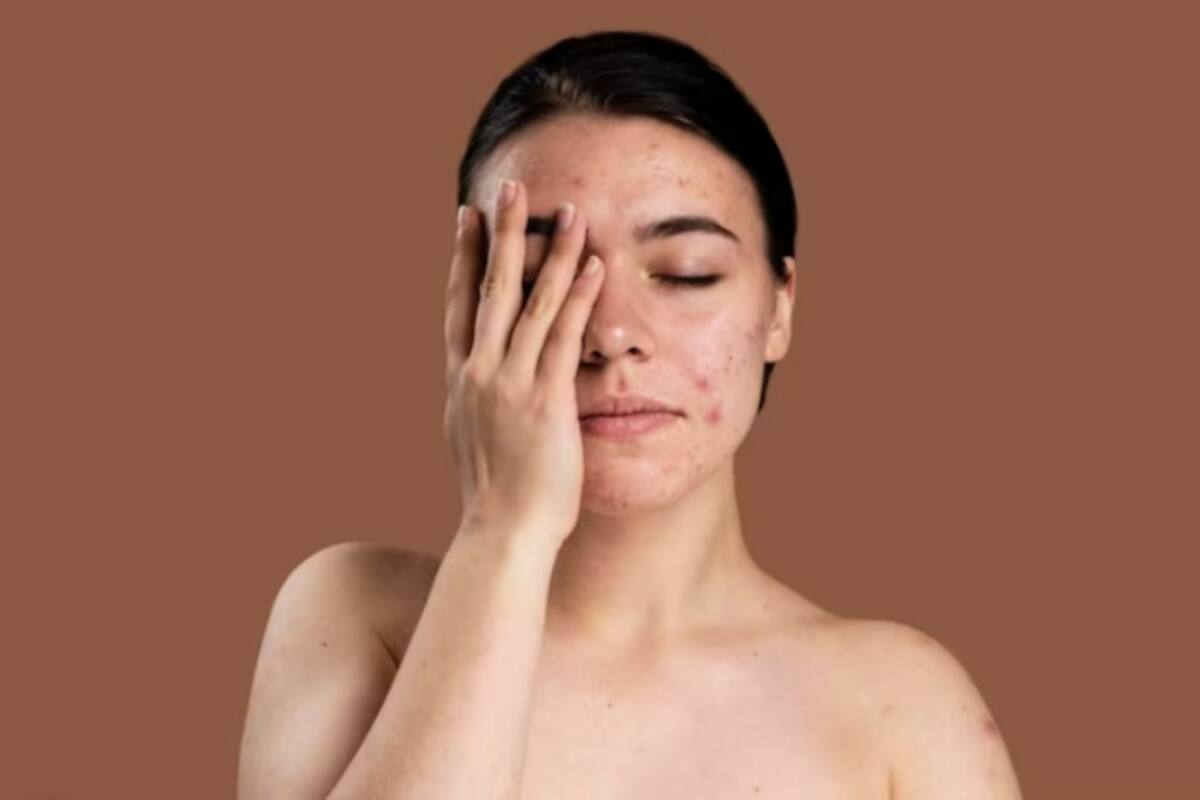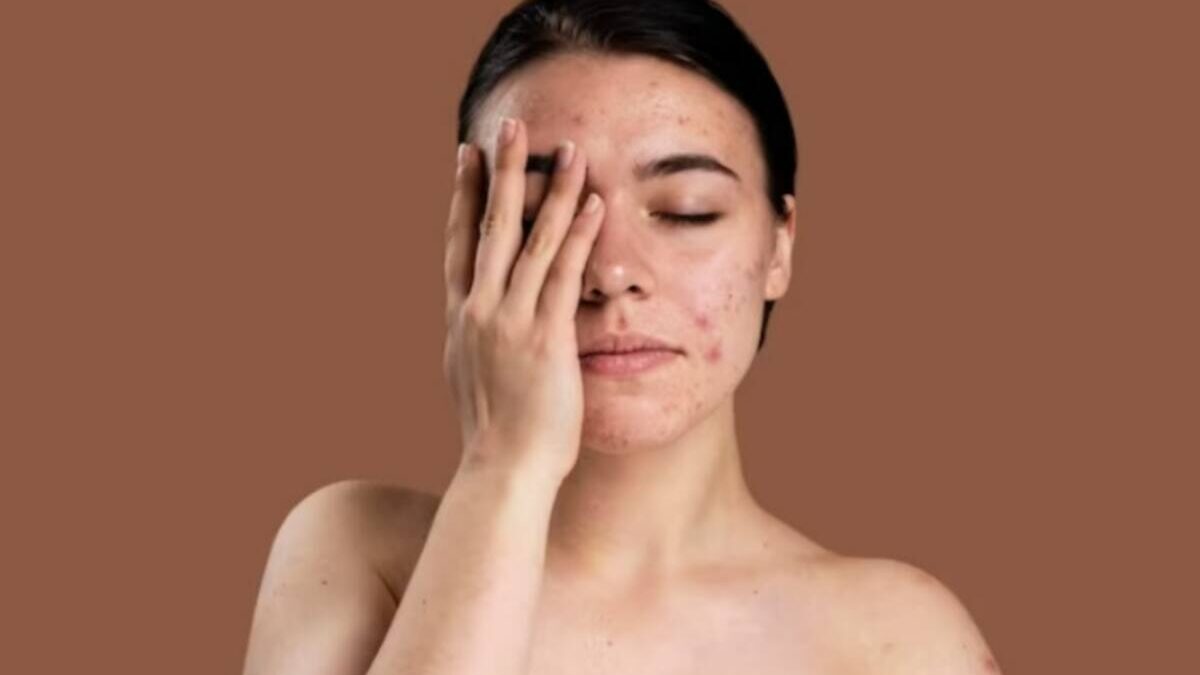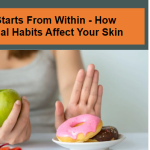7 Day Acne Free Diet Plan
7 Day Acne Free Diet Plan – Everyone remembers a time when we fought acne, trying everything that we know from avoiding junk food to using dadi maa ke nuskhe. To make your life simple we are giving you a 7 Day Acne Free Diet Plan to have a healthful and more glowing skin. From understanding the various types of acne to their signs and how the primary causes are important for making effective treatment plans. Moreover, to traditional approaches, now attention has moved toward the motive of anti acne diet in skin health. In this guide, we will find information about acne, its different signs, causes, and the possible effects of diet on the skin.

Acne is a basic skin issue visible by the growth of blackheads, pimples, and cysts. It is visible when hair follicles become closed with oil and with dead skin cells, inflammation, and bacterial growth. Mainly affecting areas like the face, chest, and back, acne is a huge skin concern.
What are the types of Acne?
There are many acne, each with distinct characteristics. Understanding these variations is crucial for tailored treatment strategies.
- Nodular Acne – Nodular Acne has similarities to cystic acne, nodular acne is known for the growth of hard, hurting nodules under the skin’s surface.
- Acne Fulminans – An odd and serious type of acne, it is caused by systemic symptoms like fever and muscle pain.
- Acne Mechanica – Caused by external reasons such as pressure, heat, and friction, acne mechanica is mainly visible in parts where there is regular rubbing or force on the skin.
- Comedonal Acne – This type covers the making of comedones, which are non-inflammatory scratches. Blackheads have widened pores, while closed whiteheads are coated by a thin barrier of skin. This can be removed by following a nice acne free diet plan.
- Inflammatory Acne – Inflammatory acne is recognized by red and swollen lesions. Papules are small unlifted bumps, while pustules have pus. Together, they show basic signs of this kind of acne.
- Cystic Acne – Serious and deep, cystic acne has wide, hurtful cysts or nodules. It frequently leads to lasting scars and needs professional medical care.
Symptoms and Causes Of Acne
Symptoms
Acne is a basic skin problem that appears when hair follicles become closed with oil and dead skin cells. It sometimes results in the making of pimples, whiteheads, blackheads, and cysts. The variety and types of symptoms can be different, but here are the main basic symptoms that come with acne:
- Papules – Red, small, and inflamed bumps.
- Pustules – Inflamed lesions having pus.
- Nodules – Big, hurtful lumps under the skin’s barrier.
- Cysts – Deep, pus-filled lesions sometimes leading to scarring.
- Pimples – Small, uplifted red bumps on the skin.
- Blackheads – Open blister with dark centers due to oxidized melanin.
- Whiteheads – Closed comedones with white or flesh-colored visibility.
The symptoms can be different, and additional signs may cover redness, swelling, and pain around infected areas. An appointment with a dermatologist can help decide the suitable course of action. Moreover, it has incorporated an anti-acne diet, based on the particular symptoms.
But now the question is, what are the causes of Acne? Now let us talk about the causes of acne:
Causes
Bacteria
The bacterium propionibacterium acnes commonly appears on the skin, but when the hair follicles become closed, it can double and contribute to inflammation and acne lesions.
Hormonal Changes
Hormonal changes, like those that are visible through puberty, menstruation, pregnancy, and some medical cases, can impact the development of acne. Androgens, male hormones that appear in both males and females, play an important role in making oil production.
Sebum
Excess production of oil called sebum by the sebaceous glands is the reason for acne. Hormonal changes, specifically through puberty, can promote the sebaceous glands to produce excess oil.
Hair Follicle Clogging
When the hair follicles become closed with a blend of extensive oil and dead skin cells, it makes an environment for the development of acne-causing bacteria.
Dietary Factors
The connection between diet and acne is still a type of debate. Some studies show that some foods, like those high in carbohydrates and dairy products, may affect acne in some people. So it is suggested to follow a complete acne free diet plan.
Stress
Even though stress alone may not cause acne, various people assume that ‘stress causes pimples,’ highlighting its possibility to worsen present acne by triggering hormonal changes and leading to enhanced oil production.
Environment
Exposure to some environmental impurities and high humidity can cause the development of acne.
Genetics
A family history of acne may enhance the likelihood of developing acne. Genetic factors can impact how the skin reacts to hormonal changes and inflammation.
Some Medications
Some medicines, like corticosteroids, and drugs lithium or androgens, can contribute to acne growth.
Our 7 Day Acne Free Diet Plan
Day 1
- Pomegranate And Watermelon Juice
- Peanut Salad
- Mix Fruit Smoothie
- Rice Pulao (Add Veggies) + Curd
- Ginger Mint Water
- Handful Of Roasted Makhanas And Channa
- Pomegranate And Watermelon Juice
- Chamomile Tea
Day 2
- Pomegranate And Watermelon Juice
- Chia Porridge
- Mix Fruit Smoothie
- Paneer Kathi Roll
- Ginger Mint Water
- Handful Of Roasted Makhanas And Channa
- Besan Oats Chilla
- Chamomile Tea
Day 3
- Pomegranate And Watermelon Juice
- Ragi Malt
- Mix Fruit Smoothie
- Any Seasonal Veg+ Wheat/Ragi Rotis
- Ginger Mint Water
- Handful Of Roasted Makhanas And Channa
- Ragi Soup With Vegetables
- Chamomile Tea
Day 4
- Pomegranate And Watermelon Juice
- Chia Porridge
- Mix Fruit Smoothie
- Veg Dalia
- Ginger Mint Water
- Handful Of Roasted Makhanas And Channas
- Mac Singh’s Channa Soup
- Chamomile Tea
Day 5
- Pomegranate And Watermelon Juice
- Ragi Malt
- Mix Fruit Smoothie
- Any Seasonal Veg+ Wheat/Ragi Rotis
- Ginger Mint Water
- Handful Of Roasted Makhanas And Channas
- Jaun Chilla And Mint Chutney
- Chamomile Tea
Day 6
- Pomegranate And Watermelon Juice
- Oats In Almond Milk
- Mix Fruit Smoothie
- Paneer Kathi Roll
- Ginger Mint Water
- Handful Of Roasted Makhanas And Channas
- Beetroot Oats Chilla And Mint Chutney
- Chamomile Tea
Day 7
- Pomegranate And Watermelon Juice
- Veg Dalia
- Mix Fruit Smoothie
- Palak Dal Khichdi
- Ginger Mint Water
- Handful Of Roasted Makhanas And Channas
- Egg & Veggies Stir Fry
- Chamomile Tea
Conclusion
We offer a 7 Day Acne Free Diet Plan including a complete approach to skin health. This guide offers practical insight, into identifying several acne symptoms and kinds of acne. Moreover, we offer you a maintained diet to care for acne and also find out some products to include in your diet.
FAQs
Does food work in acne?
According to a study, following a low-glycemic diet may lessen the amount of acne you have. Low-glycemic foods have mostly fresh vegetables, fresh fruits, beans, and oats.
Does drinking water can help reduce acne?
Drinking water is mainly thought to protect from acne by properly hydrating skin. Dry skin can cause excess oil production, which could be a reason for acne.





